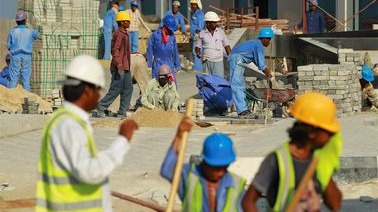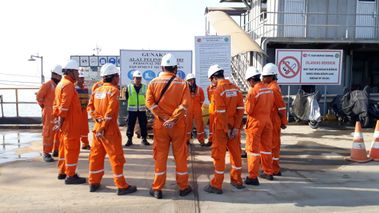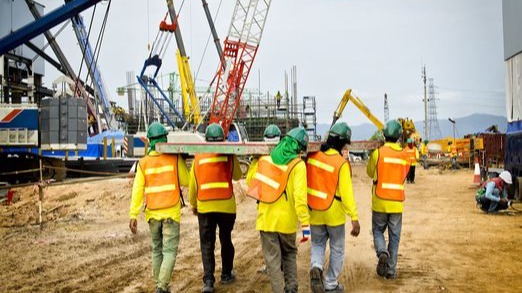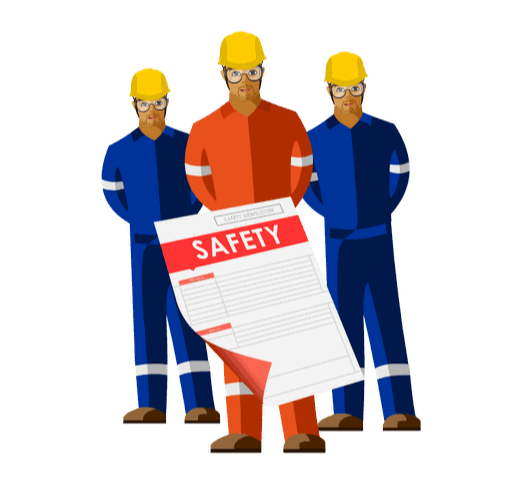- Uncategorized
- Course Overview
- Lesson 1 - NM Overview & History
- Lesson 2 - NM Objective & Purpose
- Lesson 3 - NM Decision Making Criteria
- Lesson 4 - NM Process
- Step 1 - Identify Phase
- Step 2 - Reporting Phase
- Step 3 - Investigation Phase
- Step 4 - Intervene Phase
- Step 5 - Review Phase
- Lesson 5 - Tracking NM
- Lesson 6 - How to implement NM?
- Lesson 7 - Removing Barriers
- Lesson 8 - Encourage NM Reporting
- Case Studies & Projects
- Survey Questionnaire
- Course Certificate
Why Near Misses Do Not Get Reported?
Near miss reporting provides a company with invaluable insight about potential hazards as well as important data for risk calculations. However, when workers don't report near misses for whatever the reason, the total value of the information collected becomes less credible and can leave gaping holes in the data collection process.
Here are 8 reasons why near misses are not getting reported:
Complacency
Employees become comfortable with the way things are and are willing to put up with minor inconveniences because they perceive it to be easier than fixing the situation. They may even know there is a risk of injury or equipment damage associated with a particular set up or procedure, but they have developed the attitude of "it won't happen to me", or "it's not my problem."


Blame / Punishment
Employees can develop a fear or concern of being blamed for a near miss incident, especially if they have seen a negative reaction to a near miss reporting in the past. Or, perhaps they have seen a co-worker treated badly after getting injured on the job.
Complicated Process
If the process of filing a near miss report is complicated, too time consuming or confusing workers will hesitate to submit a report.


Peer Pressure
Coworkers can see the reporting of a near miss in a few ways. They can see it as the action of a hero or a zero. If the one reporting the near miss is seen by his coworkers as trying to get on management's good side and comments are made to the such, he may be less likely to report near misses, especially if the near miss happens to one of his commenting coworkers.
Reputation / Embarrassing
Employees are often concerned that reporting near misses that happen to them will make them appear to be accident prone, especially if other coworkers are not reporting their own near misses. Management now has a record of his safety performance and can compare it to his coworkers' performance. Additionally, some industries have a "macho" environment where "battle scars" are bragged about and where coworkers don't want to come across as weak.


Don't wont work interruption
All workers have deadlines and/or quotas to make. Reporting a near miss means at the very least, stopping work to fill out a report and possibly several hours of additional down time.
Avoid Bureaucracy
Beyond the natural aversion of many people to fill out page after page of paperwork, some companies may require the employee to speak of his near miss at meetings and/or to be on a committee to give his insight. If employees think filing a near miss report is going to turn into hours and hours of meetings and endless paperwork, they may choose not to file their report in the first place.


Lack of Recognition/ feedback
If an employee reports a near miss and never receives any follow up information as to how the situation was rectified, or is never acknowledged in a positive manner for filing the report, that employee is less likely to file a near miss report in the future.
None of these 8 issues are insurmountable. They do however require special planning, communication and implementation to reduce the likelihood of these issues happening in your workplace.
| Views | |
|---|---|
| 838 | Total Views |
| 0 | Members Views |
| 838 | Public Views |
| Actions | |
|---|---|
| 0 | Likes |
| 0 | Dislikes |
| 0 | Comments |
Share by mail
Please login to share this webpage by email.